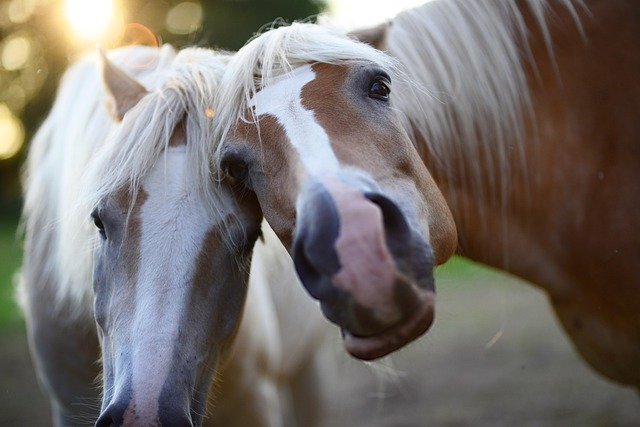
Like people, horses all-too-commonly suffer from gastric ulcers. This painful condition keeps members of both species from thriving. Luckily for humans, diagnosing and managing gastric ulcers is easy. We effortlessly communicate with our doctors about our discomfort. Horses, however, are without this luxury. Since gastric ulcers cannot be spotted externally, it can take a while before a problem is noticed. If you care for a horse, you must be aware of what causes gastric ulcers. An extremely high percentage of horses develop gastric ulcers, but much of their problem stems from human intervention.
Unlike people, a gastric ulcer in a horse is not caused by bacteria. From days after being born and throughout its lifespan, a horse naturally produces acid in its stomach. When factors prevent this acid from being neutralized for a prolonged period, problems occur. The acid begins eroding the stomach lining. Evidence of gastric ulcers is most always found in the top portion of a horse’s stomach, and the erosion can become severe if ignored.
Surprisingly, much of what owners do with their horses predisposes them to ulcers. Diet and feeding schedules are among the leading causes of gastric ulcers. Horses were meant to graze. Grazing at allows for proper digestion. The acid in the stomach is neutralized by food and saliva. For this reason, acid does not build up. Foraging is a healthy habit that gets the horse a bit of exercise alongside its stablemates away from the confinements of their stalls. Spending prolonged periods in stalls or haulers can contribute to the development of gastric ulcers. The potential for developing this problem increases with stress. Many horses risk developing ulcers after as few as five days of being regularly exposed to stress. It is no wonder why an astonishing percentage of racehorses and show horses have dealt with gastric ulcers. Training, performing, and working profoundly affect a horse’s digestion and overall health. It is equally important for horse owners to know that gastric ulcers can be side effects from prescribed medications, too. If you think your horse may be suffering from an ulcer, begin thinking about the changes you can make to your horse’s environment and routine so that it is experiencing a balance of exercise, rest, nutrition, and socialization.
Pinpointing the problem a horse experiences as being related to a gastric ulcer can be difficult because the symptoms can be signs of a variety of ailments, none of which should be ignored. You may notice that the horse loses its appetite or grinds its teeth. (You may do the same if suffering the abdominal pain caused by an ulcer!) Other objective symptoms include a dull coat, excessive salivation and loose stools. You may also sense an overall attitude change in your horse if an ulcer is present. It may be reluctant to participate in training exercises and perform poorly when compared to its healthy days of the past. Waste not a moment before having your veterinarian examine your horse.
To diagnose gastric ulcers, an endoscope is passed through a horse’s nostril all the way to its stomach. There, the camera inspects the stomach’s lining for ulcers. Following the examination, the veterinarian will be able to recommend the best course of action. Treatment may include an FDA-approved medication, minerals, vitamins, or even a feed higher in fat. Likely, the equine veterinarian will want predisposing factors minimized; limiting both stressful physical and environmental situations can help ulcers heal. Toys and balls in the stall, as well as the ability to make eye contact with a favorite stablemate, can also aid in recovery. Allowing a horse the freedom to have hay or grass when it pleases may help, as well.
In Conclusion
Take preventative measures with your horse to keep it healthy and happy from the beginning. If you are raising a foal, it is normal for your vet to prescribe it medication that will help manage the stomach’s acid as it grows. Keep your horse active, but know it has limits to what it can do. Eating roughage when it wants helps keep that stomach neutralizing the acid. Keeping the horse fed appropriately and allowing it freedoms and manageable structure may help keep gastric ulcers from forming.
